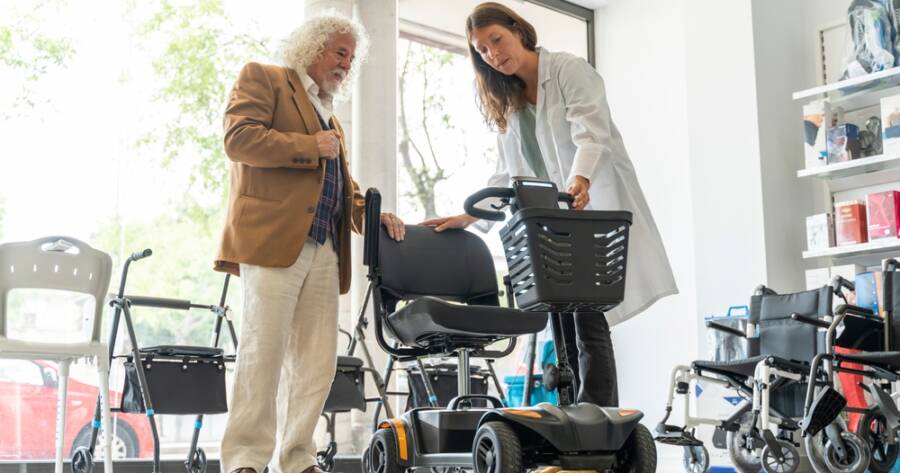Securing a mobility scooter through Medicare involves understanding eligibility, documentation, and financial assistance. Medicare Part B can cover a significant portion of the cost, contingent on a medical prescription and proper paperwork. Engaging Medicare-approved suppliers and understanding additional financial options ensures a smooth acquisition process, enhancing access to essential mobility support for those in need.
Understanding Mobility Scooter Coverage Through Medicare
Acquiring a mobility scooter through Medicare involves navigating various eligibility requirements and understanding specific enrollment criteria. Primarily, Medicare Part B can cover about 80% of the scooter’s cost after meeting the deductible requirements, making it essential for potential beneficiaries to be aware of the qualification criteria outlined by Medicare. Coverage depends significantly on a prescribed medical necessity that shows a dire need for a scooter for home mobility challenges.
Qualification Criteria for Medicare Coverage
To qualify for a mobility scooter under Medicare, a prescription from a doctor is imperative. The prescription must clearly highlight the medical necessity, often stemming from limited mobility within the home, hindering daily activities like access to the bathroom or kitchen. Additionally, an in-person examination is required, reinforcing the need for a mobility scooter to move comfortably indoors. This ensures the equipment is medically classified as necessary.
Ensuring Proper Documentation
Proper documentation is critical to securing Medicare approval for mobility scooter acquisition. A Certificate of Medical Necessity form, completed by a healthcare provider, is crucial and should reflect the user’s medical condition and impairment. This document, along with essential medical records, must be submitted to Medicare to fulfill the administrative requirements for coverage eligibility.
Engaging Medicare-Approved Suppliers
Medicare coverage stipulates that both the healthcare professional prescribing the scooter and the supplier providing it must be Medicare-enrolled. Procuring the mobility scooter from a Medicare-approved supplier ensures that it will be covered as durable medical equipment (DME).
Additionally, suppliers must submit a prior authorization request on behalf of the beneficiary to Medicare, which confirms the necessity of the equipment before any purchase or rental transaction. The authorization process does not require direct involvement from the individual receiving the equipment.
Medicare Parts and Additional Financial Assistance
Medicare Part B provides significant cost coverage, but for those seeking further financial assistance, understanding the various plans such as Part C and Medigap coverage is beneficial. These plans may help cover remaining expenses like deductibles or out-of-pocket costs. Furthermore, additional financial resources like the 211 network and VA aid for veterans can also alleviate some financial burdens associated with mobility aids.
Navigating the Appeals Process
Occasionally, Medicare may initially deny a mobility scooter request. It’s important to know that patients have the right to appeal this decision. The appeals process requires following specific procedures, which vary between Medicare Part B and Advantage plans. This process typically involves resubmitting necessary documentation to rectify any reasons for the denial and should be pursued to potentially secure much-needed mobility assistance.
Learn More About Medicare Mobility Scooter Coverage
Understanding the intricate details of securing a mobility scooter through Medicare is pivotal for many individuals facing mobility challenges at home. Proper knowledge and preparation can significantly reduce personal financial burdens, enhancing the quality of life for those in need.
By navigating eligibility requirements, ensuring proper documentation, and engaging authorized suppliers, beneficiaries can optimize their Medicare benefits effectively. As this journey may vary based on individual circumstances, continual engagement with healthcare providers and Medicare support is advised to ensure all available resources are utilized.

